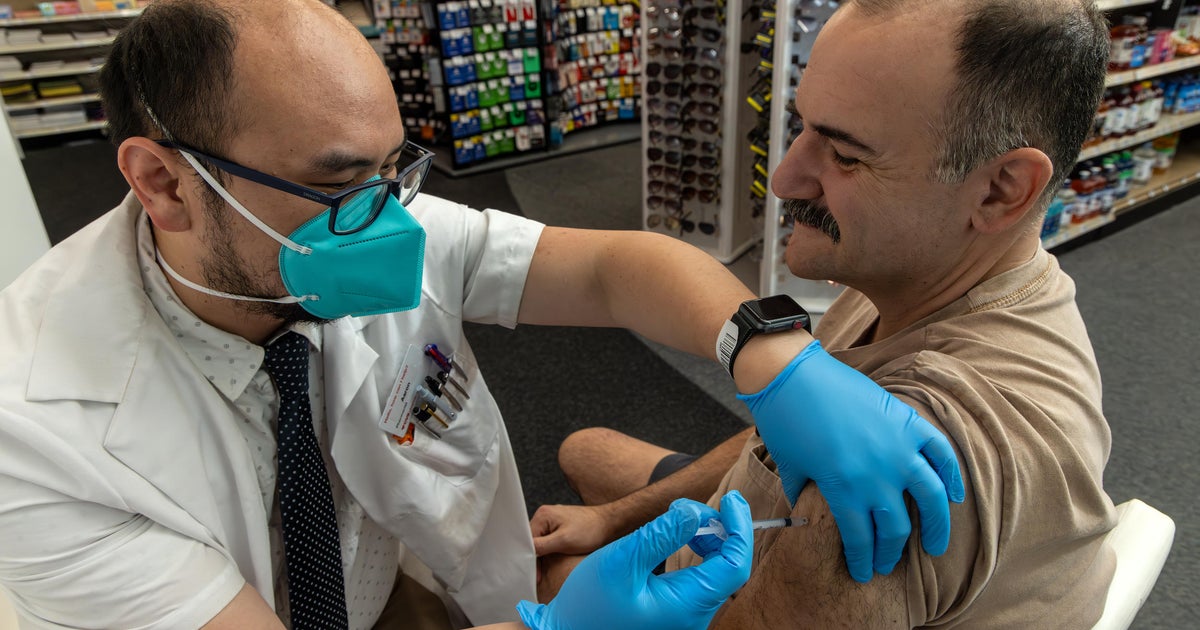During the COVID-19 pandemic, health authorities called for “booster” shots to enhance protection against the virus as immunity waned and variants emerged. However, with the introduction of an updated vaccine formula this fall, officials are now moving away from the term “booster.”
Instead, doctors and health departments are transitioning to referring to this year’s recommended shots as the “2023-2024 COVID-19 vaccine” or simply the “updated COVID-19 vaccine.”
Regardless of previous vaccinations, it is now recommended that virtually all Americans aged 6 months and older receive one dose of these updated shots from Moderna or Pfizer.
“Bye bye, booster. We are no longer giving boosters, and it’s going to be very difficult to stop using that word because that word has become pervasive,” said Dr. Keipp Talbot, a member of the Centers for Disease Control and Prevention’s committee of vaccine advisers.
Talbot made these remarks during a webinar titled “COVID-19 New Booster Vaccine & Variants Update” hosted by the Infectious Diseases Society of America.
“We are beginning to think of COVID like influenza. Influenza changes each year, and we give a new vaccine for each year. We don’t ‘boost’ each year,” added Talbot.
No more “primary series”
The change in terminology stems from a proposal backed by a panel of the Food and Drug Administration’s outside advisers in January. This proposal aimed to simplify the schedule of authorized and approved COVID-19 vaccines.
Initially, most Americans received a “primary series” of shots targeting the original strain of the virus. Subsequently, “booster” doses were offered, some targeting more recent variants, with varying guidelines based on age and previous vaccinations.
This complicated the process for individuals and their doctors to determine if they were up to date on their shots. Moreover, unvaccinated individuals needed to complete the “primary series” doses of the old formula before qualifying for the latest versions of the vaccine.
The FDA took steps to simplify the regimen in April. They phased out the original versions of the vaccine and eliminated the “primary series” versus “booster” distinction for most people.
When the FDA announced authorization and approval of the latest formulation of the vaccines, they referred to them as updated versions for the 2023-2024 fall and winter seasons, emphasizing that they are not “boosters.”
Statements from the White House and the Department of Health and Human Services also avoided using the term “booster” when discussing the availability of the latest shots.
A CDC poll regarding the new shots asked Americans if they were open to receiving the “new, updated COVID-19 vaccine.”
However, the term “booster” still appears on many official pages, including the United Kingdom’s “autumn vaccine booster” campaign and press releases from some state and local health departments in the U.S.
“It’s going to be difficult to start changing that terminology, but it is no longer a booster. It is now the current vaccine for the year,” concluded Talbot.
Denial of responsibility! Vigour Times is an automatic aggregator of Global media. In each content, the hyperlink to the primary source is specified. All trademarks belong to their rightful owners, and all materials to their authors. For any complaint, please reach us at – [email protected]. We will take necessary action within 24 hours.


